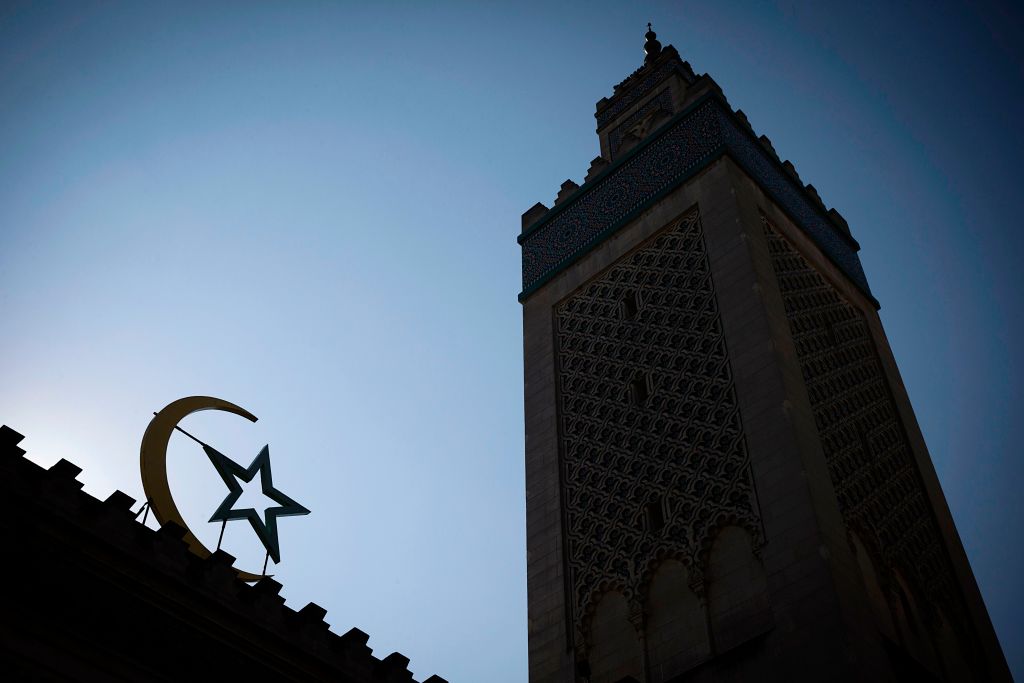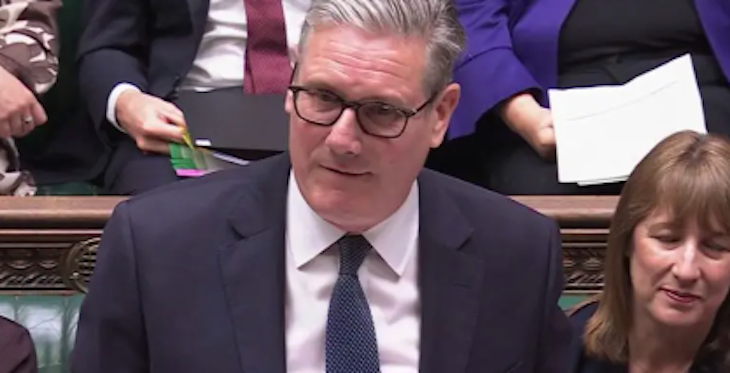A poll this week in France found that 78 per cent of respondents are in favour of proscribing the wearing of Muslim headscarves at universities and also for classroom helpers on school outings.
The poll was conducted after comments by the Interior Minister, Bruno Retailleau, in a newspaper interview. ‘Helpers [on school trips] don’t have to wear headscarves,’ he said. ‘The headscarf is not just a piece of cloth: it’s a banner for Islamism, and a statement of women’s inferiority in relation to men.’ In the same interview, Retailleau promised to stem immigration into France because it ‘is partly linked to Islamism’.
Retailleau’s remarks underline the huge gulf that separates the governments of France and Britain in regard to their attitude towards political Islam.
This divide is not a new phenomenon. In the 1990s and early 2000s, the French intelligence service nicknamed the British capital as ‘Londonistan’ because successive governments allowed Islamic extremists from around the world to set up home and proselytise with impunity. The most notorious was the Egyptian cleric, Abu Hamza, who for years spewed his hatred of the West from the Finsbury Park Mosque until, in 2004, he was extradited across the Pond at the insistence of the Americans.
Bruno Retailleau’s predecessor at the Interior Ministry was Gerald Darmanin, who in a debate with Marine Le Pen in 2021 accused her being too ‘soft’ on Islamism. Darmanin is the new Minister of Justice in Francois Bayrou’s government, replacing the soft Socialist Didier Migaud who was out of his depth during his short stint in Michel Barnier’s administration.
In May last year, Darmanin encouraged Emmanuel Macron to initiate a detailed public investigation into the Muslim Brotherhood’s expansion throughout France. Atrocities committed by men swearing allegiance to Isis or Al-Qaeda garner global headlines, but they do more harm than good to those Islamists whose goal is to conquer Europe because they repel their fellow Muslims. More than a third of the 86 people killed by an Islamist in Nice in 2016 were Muslims.
The Brotherhood’s strategy is one of soft power. Describing the Brotherhood as a ‘vicious organisation’, Darmanin explained how they deployed ‘much gentler methods…[to] gradually bring all sections of society into the Islamic matrix’.
This warning was reiterated last month by Bertrand Chamoulaud, head of the National Directorate for Territorial Intelligence. He explained that the Brotherhood’s ‘infiltration affects all sectors: sports, health, education, etc,’
Darmanin and Retailleau are expected to collaborate on a proposal that the latter first raised in an address to France’s prefects last October. It is a law targeting ‘the nature and strategies of political Islam’, which in the opinion of Retailleau, seeks to convert society ‘in small steps: in associations, businesses and even sometimes our local authorities’.
At the same time that the French government is confronting the enormity of the threat posed by political Islam, the British government is considering whether to push forward with plans to make it harder to critique Islam.
This could be achieved with an official definition of what constitutes ‘Islamophobia’, a word that the French government rejected as far back as 2013 when the Minister of the Interior Manuel Valls (now the Minister for Overseas) said: ‘Those who use this word are trying to invalidate any criticism at all of Islamist ideology.’
Last year, Darmanin said the concept of ‘Islamophobia’ was key to the Brotherhood as ‘it covers their primary strategy, that of victimisation’.
Much of Britain’s political class takes a different view. In 2019 the All-Party Parliamentary Group on British Muslims defined Islamophobia as ‘rooted in racism and is a type of racism that targets expressions of Muslimness or perceived Muslimness.’
Starmer and his party appear incapable of grasping the most basic of facts
Running the country in 2019 was Theresa May, a Tory leader who said the 2015 Charlie Hebdo massacre was ‘not Islamic and is not in the name of their religion’. This declaration – made a few days after the atrocity – contradicted the gunmen, who were heard to cry as they left the building ‘we have avenged the Prophet Muhammad’.
Kemi Badenoch hasn’t got the naivety of May, and at Wednesday’s PMQs she asked Keir Starmer to abandon the Labour party’s adoption of the definition of Islamophobia because of ‘its chilling effect’.
The Prime Minister gave a non-committal response.
He and his party appear incapable of grasping the most basic of facts: it is unacceptable to discriminate against someone because of their religion; it is acceptable to criticise a religion.
Last year, the French government warned that ‘Islamist separatism is a theorised politico-religious project…aimed at building a counter-society. The Muslim Brotherhood plays a major role in disseminating such a system of thought.’
The French academic Florence Bergeaud-Blackler has been investigating the Brotherhood for three decades and the fruits of her labour were published in a 2023 book. She described how the organisation had implanted itself in Britain more successfully than any other European country except for Belgium. ‘Victimisation has become the formidable weapon of the Brotherhood’s soft power for bending democracies by keeping them in a state of permanent and blinding indignation,’ wrote Bergeaud-Blackler; she was on the radio this week, citing Britain as an example of a country that is all to eager to accommodate Islamism.
Knowing the Prime Minister, he might label such a declaration as ‘far-right’. It’s not, it’s a statement of fact.








Comments